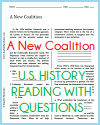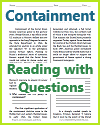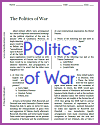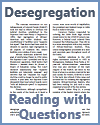The Culture of the 1950s |
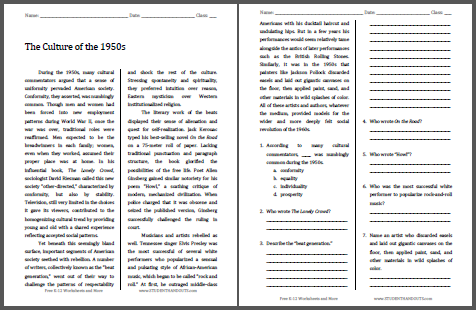 During the 1950s, many cultural commentators argued that a
sense of uniformity pervaded American society. Conformity, they
asserted, was numbingly common. Though men and women had been
forced into new employment patterns during World War II, once
the war was over, traditional roles were reaffirmed. Men
expected to be the breadwinners in each family; women, even when
they worked, assumed their proper place was at home. In his
influential book, The Lonely Crowd, sociologist David Riesman
called this new society "other-directed," characterized by
conformity, but also by stability. Television, still very
limited in the choices it gave its viewers, contributed to the
homogenizing cultural trend by providing young and old with a
shared experience reflecting accepted social patterns. During the 1950s, many cultural commentators argued that a
sense of uniformity pervaded American society. Conformity, they
asserted, was numbingly common. Though men and women had been
forced into new employment patterns during World War II, once
the war was over, traditional roles were reaffirmed. Men
expected to be the breadwinners in each family; women, even when
they worked, assumed their proper place was at home. In his
influential book, The Lonely Crowd, sociologist David Riesman
called this new society "other-directed," characterized by
conformity, but also by stability. Television, still very
limited in the choices it gave its viewers, contributed to the
homogenizing cultural trend by providing young and old with a
shared experience reflecting accepted social patterns.Yet beneath this seemingly bland surface, important segments of American society seethed with rebellion. A number of writers, collectively known as the "beat generation," went out of their way to challenge the patterns of respectability and shock the rest of the culture. Stressing spontaneity and spirituality, they preferred intuition over reason, Eastern mysticism over Western institutionalized religion. The literary work of the beats displayed their sense of alienation and quest for self-realization. Jack Kerouac typed his best-selling novel On the Road on a 75-meter roll of paper. Lacking traditional punctuation and paragraph structure, the book glorified the possibilities of the free life. Poet Allen Ginsberg gained similar notoriety for his poem "Howl," a scathing critique of modern, mechanized civilization. When police charged that it was obscene and seized the published version, Ginsberg successfully challenged the ruling in court. Musicians and artists rebelled as well. Tennessee singer Elvis Presley was the most successful of several white performers who popularized a sensual and pulsating style of African-American music, which began to be called "rock and roll." At first, he outraged middle-class Americans with his ducktail haircut and undulating hips. But in a few years his performances would seem relatively tame alongside the antics of later performances such as the British Rolling Stones. Similarly, it was in the 1950s that painters like Jackson Pollock discarded easels and laid out gigantic canvases on the floor, then applied paint, sand, and other materials in wild splashes of color. All of these artists and authors, whatever the medium, provided models for the wider and more deeply felt social revolution of the 1960s. |
Click here to print. Answer Key: (1) A - conformity; (2) David Riesman; (3) Writers who went out of their
way to challenge the patterns of respectability and shock the
rest of the culture; stressed spontaneity and spirituality; preferred intuition over reason, Eastern mysticism over
Western institutionalized religion; (4) Jack Kerouac; (5) Allen Ginsburg; (6) Elvis Presley; (7) Jackson Pollock. |
 |
|---|
Text courtesy of the U.S. State Department, Bureau of International Information Programs, 2005 |



